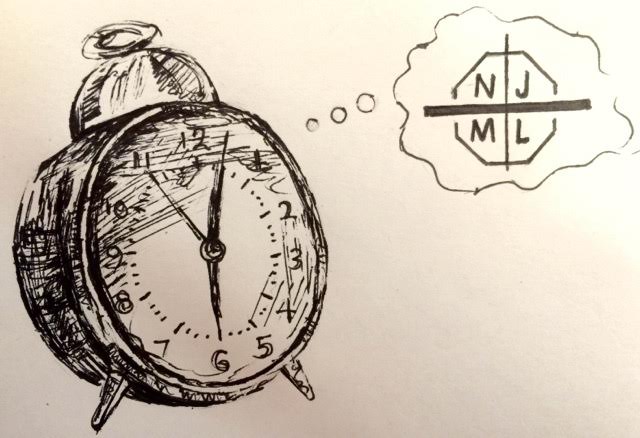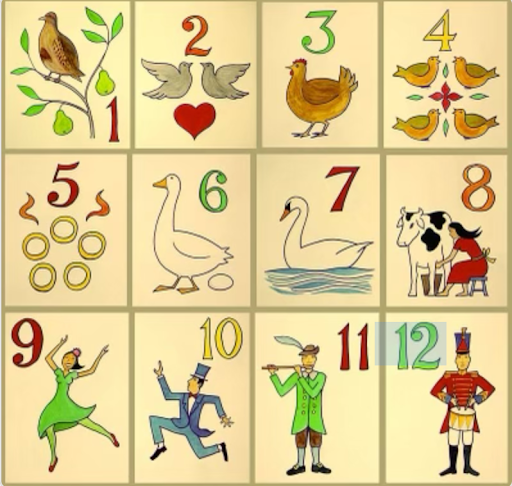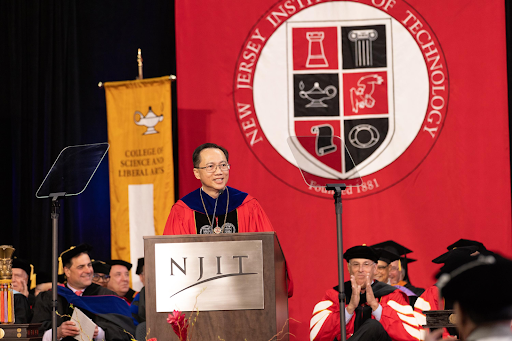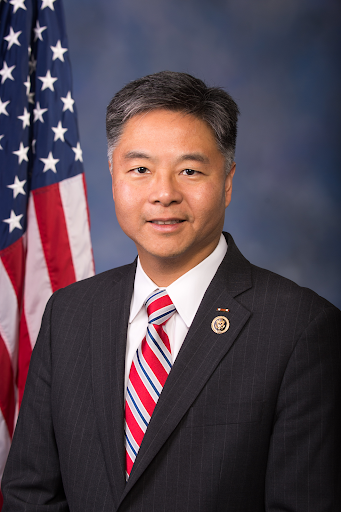NJML: NBD… JK
December 20, 2015
It is 6:45AM. The hallways of Ridge High School, normally empty and undisturbed at this ungodly hour, are oddly occupied by students walking toward the 500 wing. Some move briskly, others in a zombie-like fashion, disgruntled to be deprived of an extra fifteen minutes of sleep. In the 500 wing, peaceful quietude transforms into an anticipatory buzz of socialization as hordes of eager students wait outside math classrooms. Around 6:55, the math teachers begin to open their doors, and the race begins. In the dog-eat-dog world of math problems and extra credit, it’s every man (or woman) for him- (or her-) self. This is NJML.
One day per month, October through March, a highly unusual phenomenon takes place within the math classrooms of Ridge High School: hundreds of students voluntarily take six-question-long math quizzes, developed by the New Jersey Math League (NJML). The questions range from relatively simple geometry-based “thinkers” to variable-happy doozies that rely on a solid grasp of mathematical concepts—and a degree of creativity—to solve.
This year, NJML has surged in popularity; math teacher Mr. Boop says incredulously of its attendance, “It’s gotten crazy. Turnout has been insane.” In past years, the number of students taking the test averaged between 300 and 320; at the November 2015 contest, there were a staggering 357 students in attendance.
According to Mr. Boop, the sole grader of NJML tests at Ridge, grading the tests themselves is a relatively quick task (1.5 hours, to be exact). But with such a large number of tests to sift through, organizing, recording and returning the scores with the help of his Business Ed students can take up to 6 hours in total.
So, why do Ridge High School students so enthusiastically make the early morning pilgrimage to school each month? The answer may lie largely in the extra credit incentive: in every class in the math department, students receive one point of extra credit for each correctly answered question, with a maximum of ten such points allowed per marking period (leftover extra credit points roll over to the next marking period). If students are enrolled in multiple math classes—for example, a standard math course such as Pre-Calculus along with AP Statistics or AP Computer Science (or all three)—they receive the points in each of those classes.
While most think fondly of NJML as a grade-boosting opportunity, many also use the state-wide contest as training grounds for even tougher math competitions. Timothy Tang ’16 remarks, “I would definitely say it’s worthwhile for practice purposes. For other schools in the state, which don’t offer extra credit for NJML problems, many of the students who are passionate about Olympiad math get up in the morning to do them nonetheless…[and] go on to participate in competitions such as the AMC, AIME, PUMaC, and HMMT. I think they’re a bit better prepared for those advanced competitions thanks to NJML.”
Tang, who finished last year with the fourth-highest cumulative NJML score in the state, lauds another benefit of participating in NJML: “Personally, doing NJML forces me into a state of super-alertness early in the morning, which is similar to drinking coffee.”
Raveesh Koul ’17 echoes this sentiment, classifying NJML as a “good warm-up for the rest of the day” and “a place to stimulate creative thoughts.” He also comments on the unique nature of the NJML problems themselves: “In the NJML, all the questions can be solved with some simple math, but the difficult aspect of the contest is how to manipulate the simple math to answer the problem.”
Notably, as Koul says, the challenge of NJML lies not in having intricate knowledge of higher-level math, but in using knowledge of certain foundational concepts to “crack” the problems and solve them efficiently.
The Ridge Computer Science Club has taken steps to bring the American Computer Science League (ACSL) contest—a contest similar to NJML, but which tests Computer Science concepts – to Ridge as well. If these efforts are successful, only the future will tell if the extra credit policy for students enrolled in the AP Computer Science course at Ridge will receive revision.
Andrea Zhang ’18 summarizes, with a brevity akin to the short yet meaningful NJML tests themselves, the main draws of NJML for her and others: “1) I like math. 2) NJML’s math problems are usually quite interesting. 3) Extra credit.”










